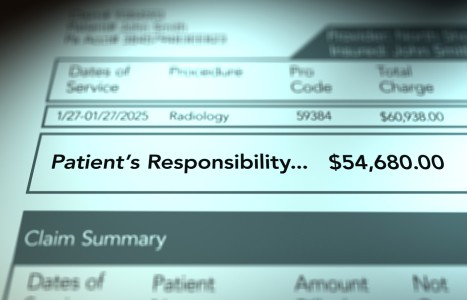Recent laws in New Jersey and California represent a disturbing trend that will negatively impact a practice’s ability to collect monies from patients, as well as expose them to significant penalties if the practice does not follow the mandatory guidelines to a T. Please be aware that a similar law may be coming to your state. The time to act is before the law is passed.
The Limited Benefits of Antibiotics for Otitis Media
Ever wonder why so many parents are searching for a cure for their child's ear infections? Why don't they get the relief they seek from antibiotics? One possible answer may be the lack of effectiveness of antibiotics for acute otitis media (AOM) and otitis media effusion (OME).
A recent issue of Research Activities, published by the Agency for Health Care Policy and Research (AHCPR), contained the article, "Preventitive antibiotics for middle ear infections have limited benefit." According to the article, "The cost of treating chronic middle ear infections in children in the United States exceeds $3.5 billion a year." Antibiotics are the usual initial course of treatment, but how effective are they?
"Researchers at the Case Western Reserve University School of Medicine and the Harvard School of Public Health, supported in part by the Agency for Health Care Policy and Research (HS05936), analyzed 27 studies conducted between 1966 and 1993 to determine the efficacy of antibiotics for preventing recurrent AOM and treating OME in children. They found that prophylactic antibiotics do prevent further episodes of AOM, but the magnitude of the effect is limited, with only one in nine children showing an improved outcome.This is yet another example of treating the symptoms rather than the cause. With antibiotics only benefiting 11 percent of the AOM sufferers and only 16 percent of the OME, it is easy to see why parents are searching for a better solution."A short course of antibiotics appears to be effective for OME for short-term clearance of effusion. However, the effect is limited; only one in six patients has an improved outcome, and the improvement only lasts for about 1 month, not enough time to affect speech development. More recent studies suggest that antibiotics offer even fewer short-term benefits, including studies with placebo controls. The researchers note, however, that it may be unreasonable to expect a brief course of antibiotics to produce lasting benefits in this condition, given the continued role of eustachian tube dysfunction involved in the development of OME."
While there is no shortage of projects facing the research community, the need for an effective treatment in pediatric patients is enormous. Perhaps our chiropractic college research departments can be persuaded to make this a priority.


